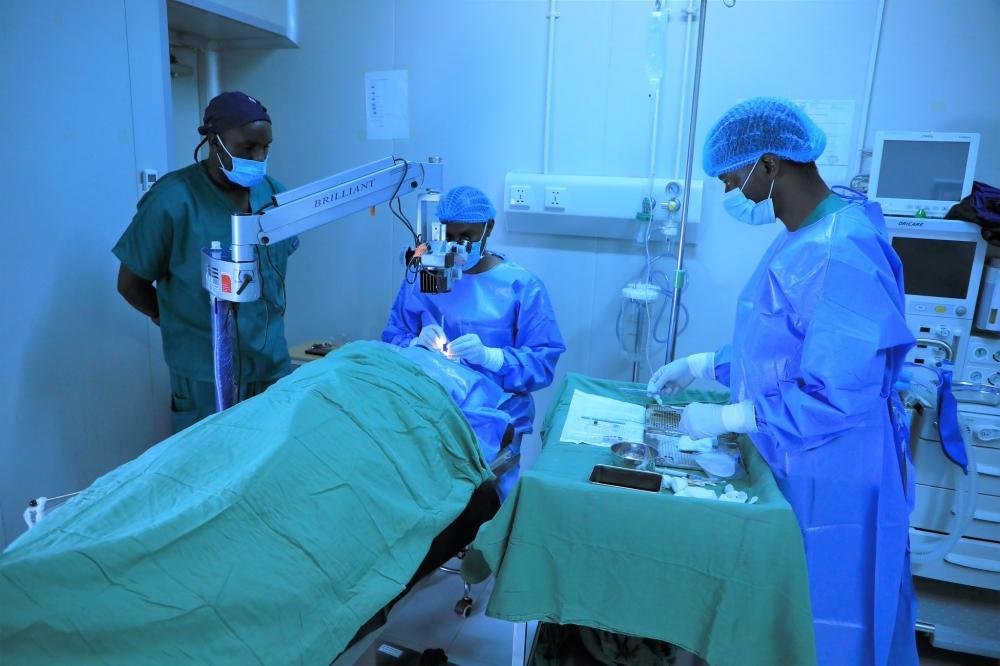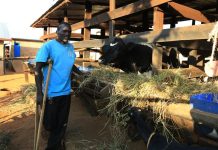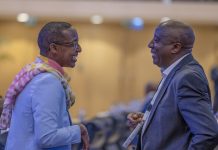Africa-Press – Rwanda. What if the future of healthcare in Africa isn’t about choosing between tradition and technology, but combining both? Imagine a consultation room where a doctor with a tablet, a community health worker with a basic phone, and a traditional healer with knowledge of medicinal herbs all work side by side.
To many medical professionals, this scene might sound unrealistic, even laughable. What is a traditional healer doing in a clinical setting?
For decades, modern medicine and traditional healing have stood on opposing sides. Medical practitioners have often dismissed traditional healers as primitive or dangerous, viewing their methods as obstacles to progress.
Despite this, traditional healers are the first point of care for millions across Africa, particularly for conditions like mental illness, which are often linked to witchcraft, curses, or poisoning within cultural beliefs.
This trust in traditional practices can delay or prevent people from seeking effective medical treatment. In some cases, it can be fatal. Take breast cancer, for example, early detection can lead to cure. Yet in many African societies, breast lumps are believed to be a form of poisoning, prompting families to seek traditional remedies instead of medical diagnosis.
To address this challenge, Africa must consider a new approach that integrates traditional wisdom with modern innovation. The future of healthcare on the continent lies in collaboration, not exclusion.
Can traditional healers work alongside modern medicine?
In many communities, traditional healers are trusted more than formal healthcare providers. That trust is a powerful tool, and modern practitioners should engage with it, not ignore it.
By building open dialogue, doctors, nurses, and traditional healers can come to an agreement on life-threatening signs that require urgent medical referral, such as heavy bleeding, persistent high fever, pregnancy complications, chest pain, unconscious children, or suicidal thoughts.
This collaboration also means welcoming patients into clinics without judgment, even if they have tried herbs first. Doctors should ask, “what have you taken so far?” healers should ask, “what did the clinic prescribe you?” no secrecy, no shame, but just honesty and shared responsibility for the person in front of us. One patient, one care plan.
Safety is a concern with traditional remedies as dosages are often unclear, and some herbs may be ineffective or even harmful, especially when mixed with prescription medications. That’s why we must invest in rigorous research to test common remedies, publish findings, and issue clear guidance on what is safe and what is not.
Digital innovation in African healthcare
While tradition holds deep roots in African communities, digital technology is transforming healthcare. For instance, artificial intelligence and mobile health tools offer opportunities to improve access, efficiency, and quality of care. However, innovation should be tailored to local needs.
Technology in African healthcare doesn’t need to be flashy. It can be simple but powerful like a text message reminding a mother of her child’s vaccine, a solar-powered fridge preserving vaccines in remote areas, or a community health worker tapping “refer” on a basic app, alerting the clinic before the patient even arrives.
We should measure the value of innovation by what families experience, like shorter waiting times, fewer stockouts, quicker referrals, safe deliveries, and fewer children waking up with fever. These are the everyday wins that show progress.
Building a collaborative health system
The integration of tradition and innovation requires commitment from all stakeholders. For example, governments must create supportive policies, invest in research, and protect public interests.
Health workers need cultural sensitivity, and traditional healers should be equipped to recognize red flags and guide people to timely care. Young innovators and universities must continue building solutions that address local problems, and scale those that work.
Ultimately, the future of healthcare in Africa lies in bringing the past and future together, where innovation offers speed and wider access, and tradition brings trust and cultural connection. Together, they can build health systems that are safe, effective, and responsive to the people they serve.
The author is a medical doctor and a passionate public health advocate.
For More News And Analysis About Rwanda Follow Africa-Press






